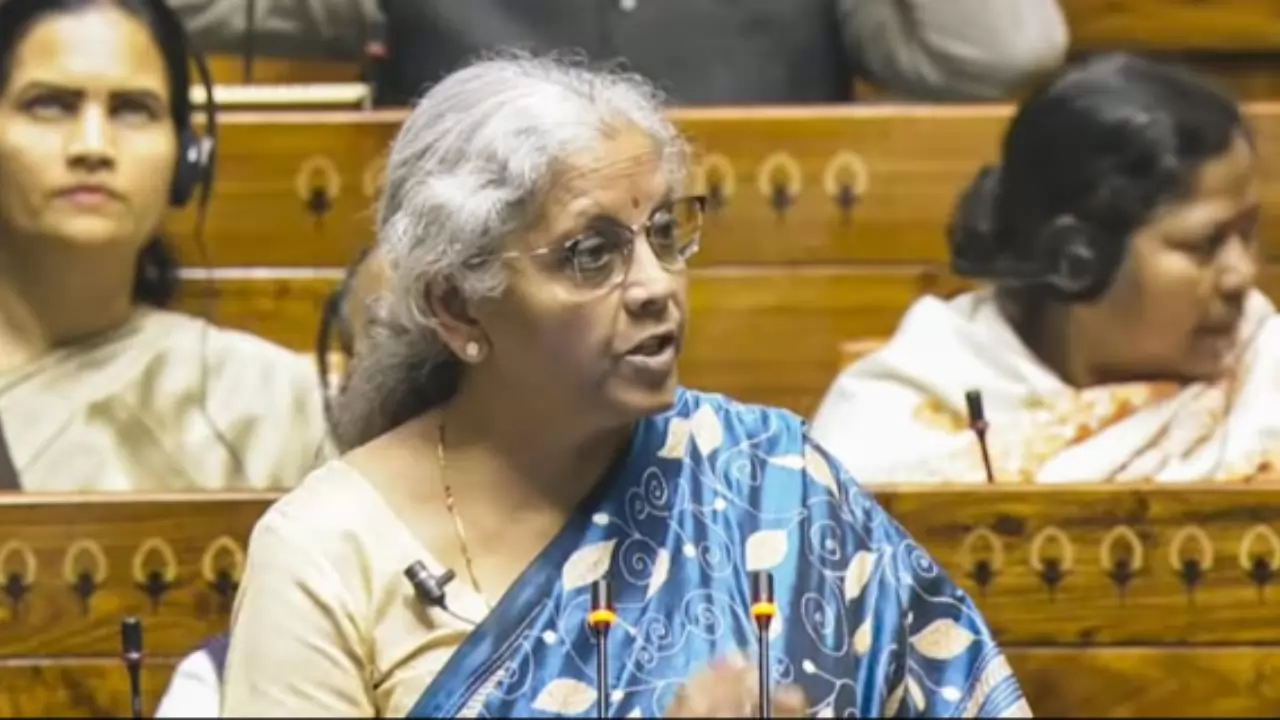
ANI
Budget 2024 has brought forth a significant revelation - while Maldives might be a tourist paradise, it's another South Asian neighbor that has emerged as the primary beneficiary of India's financial assistance. The estimated grants and loans to foreign governments for 2024-25 amount to a substantial ₹5,667.56 crore. Leading the pack is Bhutan, with an impressive ₹2,398.97 crore, a testament to the diplomatic and economic ties between the two nations.
The interim budget, unveiled by Finance Minister Nirmala Sitharaman, outlined the financial commitments India is making to support its global counterparts. The total outlay is a staggering ₹5,667.56 crore, showcasing India's commitment to international cooperation and development.
Understanding the dynamics of grants and loans is crucial. Grants, unlike loans, don't necessitate repayment, but loans carry the burden of future financial commitments. This dynamic adds a layer of complexity to India's foreign aid strategy.
Bhutan has emerged as the leading recipient, securing ₹2,398.97 crore, including a ₹1,614.36 crore loan. This underscores the strong historical ties and strategic importance of Bhutan in India's foreign policy.
While Bhutan takes the lead, other countries in the region are also significant recipients. Maldives, Nepal, Myanmar, and more feature on the list, each receiving a share of India's financial support.
1. Bhutan - ₹2398.97 crore (including ₹1614.36 crore loan)
2. Maldives - ₹770.90 crore
3. Nepal - ₹650 crore
4. Myanmar - ₹370 crore
5. Mauritius - ₹330 crore
6. Afghanistan - ₹220 crore
7. Bangladesh - ₹130 crore
8. Sri Lanka - ₹60 crore
9. Seychelles - ₹9.91 crore
10. Mongolia- ₹5 crore
In her sixth consecutive budget speech, Union Finance Minister Nirmala Sitharaman highlighted the challenges posed by the increasingly complex global landscape marked by the Covid-19 pandemic, conflicts, and geopolitical shifts. She emphasized the emergence of a new world order in the wake of the pandemic.
"The pandemic had led to a crisis of food, fertilizer, fuel and finances for the world, while India successfully navigated its way.
— PIB India (@PIB_India) February 1, 2024
The country showed the way forward and built consensus on solutions for those global problems"
- Union Finance Minister @nsitharaman… pic.twitter.com/7jCbgr6SsM
Addressing the Parliament, Sitharaman underscored the redefinition of globalization with trends like reshoring and friend-shoring, disruption and fragmentation of supply chains, and competition for critical minerals and technologies. Despite these challenges, she commended India for successfully navigating the crisis, providing leadership, and building consensus on global problem-solving.
During her address, the Finance Minister showcased the achievements of the Narendra Modi government, notably India's assumption of the G20 Presidency during a challenging period for the global economy. She drew attention to prevalent global issues such as high inflation, interest rates, low growth, soaring public debt, sluggish trade growth, and climate challenges.
Sitharaman also highlighted the India-Middle East-Europe Economic Corridor as a strategic and economic game-changer. She foresaw its positive impact not only for India but also for other nations, positioning it as a significant development in the context of the evolving global economic scenario.
The budget for the fiscal year 2024-25 outlined estimated grants and loans to foreign governments amounting to ₹5,667.56 crore. Bhutan emerged as the leading recipient, receiving ₹2398.97 crore, including ₹1614.36 crore as a loan. The budgetary allocation surpassed the previous year's revised estimates of ₹6,541.79 crore, with ₹4,927.43 crore as a grant and ₹1,614.36 crore as a loan for 2023-24.
It's crucial to note that the presented figures are part of a vote-on-account, and the complete budget is anticipated in July after the new government assumes office. The Finance Minister emphasized the significance of navigating the challenges of the global economic landscape while showcasing India's role in providing leadership and contributing to global problem-solving.





Copyright © 2026 Top Indian News
